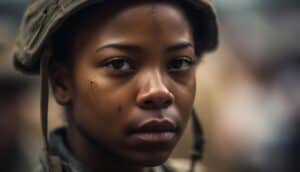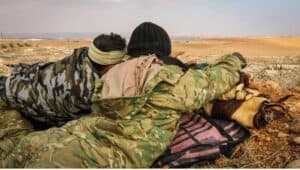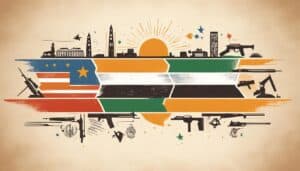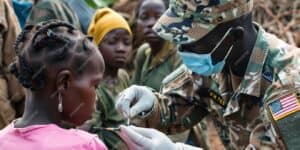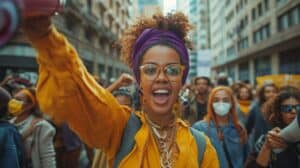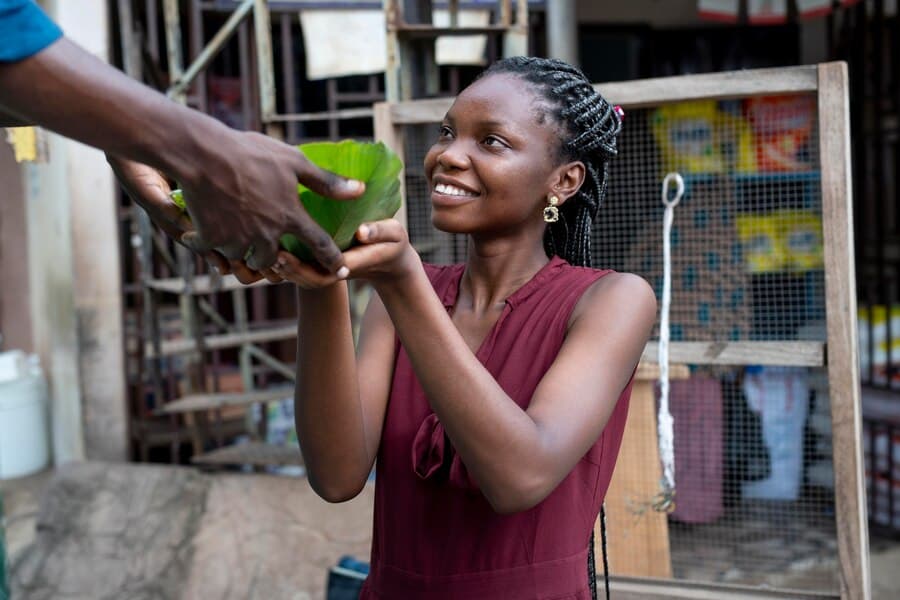
African Social Issues: Poverty, Inequality & More
Roughly half of sub-Saharan Africa’s school-aged kids, from a total of 128 million, may not get the skills they need for a good life.
This points to many pressing social issues in Africa.
These issues range from economic and human rights problems to gender inequality.
Access to education and healthcare is also a big concern.
The wealth divide is getting bigger, leading to more problems. These problems include political trouble, environmental harm, and more poor living in cities and rural areas.

Massive poverty exists next to ostentatious wealth. In Burkina Faso, workers fight for better pay, lower prices, and more social support.
Meanwhile, a few rich people use private planes for simple health needs. This is while others die from diseases like malaria because they can’t get to a hospital.
This gap between rich and poor keeps growing. The benefits of economic growth mostly help the rich. This trend is seen in many parts of Africa.
Key Takeaways
- Stark economic and social disparities exist across Africa, with a small wealthy elite coexisting alongside growing ranks of the poor.
- Poverty, inequality, and lack of access to essential services like healthcare and education are widespread, especially in rural areas.
- Gender and regional inequalities exacerbate the social challenges, with poor, rural, and female children facing the greatest barriers to education and development.
- Addressing the root causes of poverty, improving infrastructure and public services, and tackling gender discrimination are crucial to addressing Africa’s social issues.
- Governments must prioritize policies and investments to reduce inequality and ensure equitable access to opportunities for all citizens.
Widening Gap Between Rich and Poor
The disparity between rich and poor is becoming wider across Africa. A small number of people are getting very rich, while many more are getting poorer.
In places like Burkina Faso, workers are becoming poorer even as government officials live very wealthy lives.
The gap between the rich and the poor keeps growing, despite the continent’s economy doing better overall. However, this growth mainly helps the rich.
Rampant Poverty Amidst Ostentatious Wealth
Across Africa, the gap in wealth and earnings is getting bigger. Rich people are living more extravagantly, while the poor are struggling.
This stark difference in lifestyles shows that the benefits of economic growth are not shared fairly. Many people stay poor, despite the overall progress.
Unequal Access to Healthcare and Education
The big differences in wealth have serious effects on healthcare and education. The rich can get the best healthcare easily, including private planes for minor needs.
But for many others, basic healthcare is hard to reach, which can lead to deaths that could have been prevented. Similarly, the education system shows big gaps, especially for rural areas and girls.
They face major hurdles in getting a good education.
Urban-Rural and Gender Disparities
There are also big differences between urban and rural areas, and men and women. Cities have more chances for jobs and services.
But rural areas often see more poverty and lack healthcare and education. Women and girls are hit hardest, which can make their situation even worse.
This cycle of disadvantage is very hard to break.

Impacts of Economic Inequality
African economies have recently grown a lot. But this growth doesn’t help everyone. Many still live on very little money each day.
The number of people in Sub-Saharan Africa in absolute poverty doubled in 20 years.
Rising Absolute Poverty Despite Economic Growth
There’s a belief that if economies get bigger, everyone will be better off. But, in Africa, this is not happening.
The rich benefit more from growth. Meanwhile, poor people grow in numbers, creating poverty amidst growth.
Hindering Achievement of Millennium Development Goals
The gap between rich and poor is getting wider. This is bad news for the Millennium Development Goals (MDGs).
The MDGs aim to reduce poverty and improve lives. But, they face big challenges due to income inequality.

African social issues (poverty, inequality, etc.)
In recent years, African nations have faced high levels of income inequality. This got worse in the 1980s and 1990s.
The number of people living in absolute poverty doubled in sub-Saharan Africa.
Income inequality. means hard times impact the poorest more. Meanwhile, growth mostly helps the rich get richer.
Gender-based Inequalities
In countries like South Africa, Uganda, and others, issues of income inequality and regional disparities stand out.
Here, gender inequality is a serious concern. Poor, rural girls often lack basic skills due to limited education access.
Regional Disparities in Access to Services
Rural parts of Africa often have poor infrastructure and lack key services. This affects education quality for rural kids.
The difference in access to services between rural and urban areas is stark.
Rural schools have fewer qualified teachers. There are also fewer teachers for each school and student.
This creates an education crisis that hits rural kids the hardest. It also worsens poverty in the long run.
Education Crisis in Rural Africa
The education crisis in rural Africa needs our immediate attention. Schools in sub-Saharan Africa’s countryside lack many things.
They don’t have enough teachers or the right resources. This problem is made worse by the hard life many people face.
Lack of Qualified Teachers and Resources
Rural schools in places like sub-Saharan Africa struggle to find good teachers. There are not enough teachers for all the students.
This is because many teachers choose to work in cities. Cities offer them better chances, more money, and a nicer life.
These rural areas also lack basic stuff that’s crucial for learning. Things like good buildings, enough books, and clean water. Because of this, students in rural areas don’t get a full and fair education.
Impact of Poverty and Socioeconomic Conditions
Poverty and uneven living conditions in rural areas make the schooling situation worse. Many parents in the countryside didn’t get much education themselves.
This can hold back their kids at school.
The lack of investments in rural areas doesn’t help either. Things like better roads, healthcare, and farming methods are not improving.
This keeps rural areas poor and makes it hard for kids to get good schooling.
To fix the schooling problem in rural Africa, we need to do multiple things. Governments and groups helping with development need to work on reducing poverty.
They should also make sure rural areas have good roads, clinics, and schools. This will give the kids there a better chance to learn well.
Inequality Exacerbated by COVID-19 Pandemic
The COVID-19 pandemic has made inequality worse in West Africa. SADC member states lost around $80 billion in 2020. This was due to a lower economic growth than expected.
Because of this, millions of people fell into pandemic poverty. Over 60% of citizens lost their jobs or income because of the crisis.
Economic Fallout Pushing Millions into Poverty
Many people in SADC countries lost their jobs in 2020. Around 35.5 million saw a 26% drop in employment from 2019.
This big change has made inequality worse, pushing more people into poverty.
The sudden loss of jobs hit hard. It directly affected families already struggling with income issues.
Wealth Increase for Billionaires Amid Crisis
Interestingly, the rich got even richer during the pandemic. The top six billionaires in SADC saw their wealth grow.
They went from $18.1 billion to $27.7 billion, a 42% increase. This shows a big gap between those who already had money and those who didn’t.
Governments’ Lack of Commitment to Reducing Inequality
A big gap in wealth and crucial services exists throughout Africa. But, governments are moving slowly to fix these issues.
Especially in West Africa, leaders are not doing enough to help the poor with public services, taxes, and work rights.
Planned Budget Cuts and Austerity Measures
After COVID-19 hit, the economic fallout was harsh. To save money, many countries in West Africa are cutting their budgets.
In 2021, 11 of these countries cut a total of $4.4 billion from their spending.
This money could have been spent on COVID-19 vaccines for most of the people in the region. Also, 14 countries planned to cut spending by $26.8 billion.
This much money could have given vaccines to everyone and paid for a year of good schooling for 71 million kids.
Inadequate Investment in Public Services
There’s not enough focus on making things better for everyone. Money is tied up in paying off debts. This leaves too little for important social services.
However, a small rise in tax money, just 1% of GDP, could bring $56.89 billion more.
This would stop budget cuts and allow $30.9 billion for healthcare and schooling over five years.
The effects of COVID-19 made inequality worse in West Africa. For example, the wealth of the top three richest people increased by $6.4 billion during the first 17 months of the crisis.
This amount could have paid for vaccines for everyone.
This shows the urgent need for governments to act. They must make policies that help bridge the gap between rich and poor.
Conclusion: African Social Issues: Poverty, Inequality & More
Poverty and inequality are big problems in Africa. They stop the region from growing economically and socially.
There are huge gaps between the poor and the wealthy in things like healthcare and education. This lack of fairness affects everyone and keeps Africa from moving forward.
Being poor often means being less healthy. People in poverty have higher rates of child death and shorter life spans.
The gap between the rich and the poor also has a big impact on health. Many African nations are having a hard time meeting health goals, leading to differences in how long people live and how much they know.
Dealing with these problems needs a lot of different actions. We can’t just fix things for a short time.
Leaders need to focus on making growth fair for everyone and on improving public services. They also need to help build strong communities.
With everybody working together over time, Africa can move away from deep poverty and towards a future of equal chances and lasting growth.
Related read: African-conflict-and-peacekeeping-efforts-expert-insights
